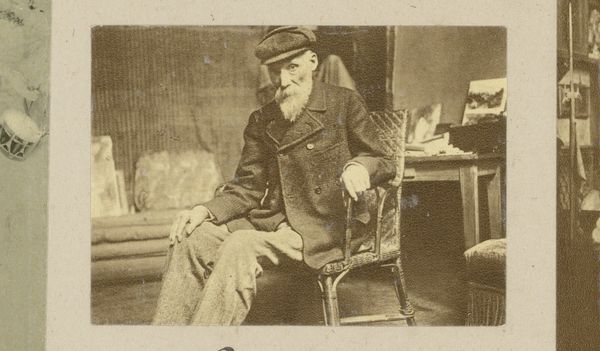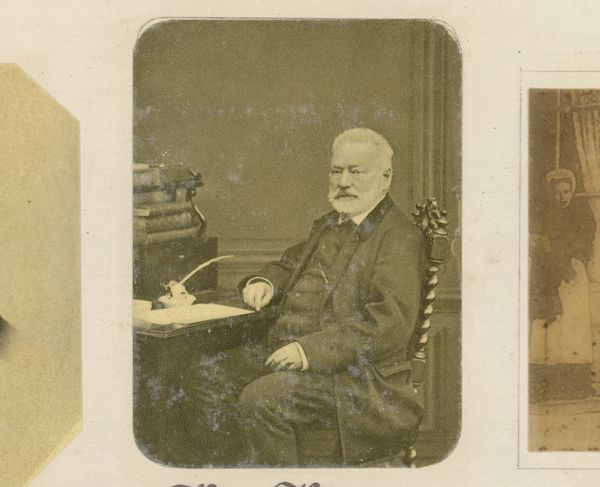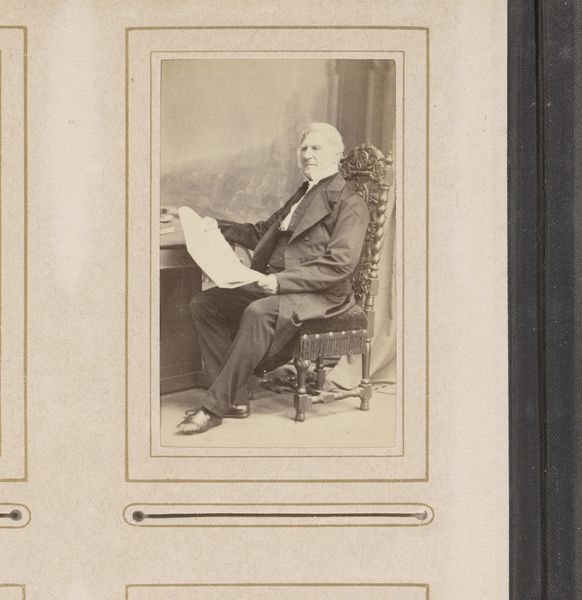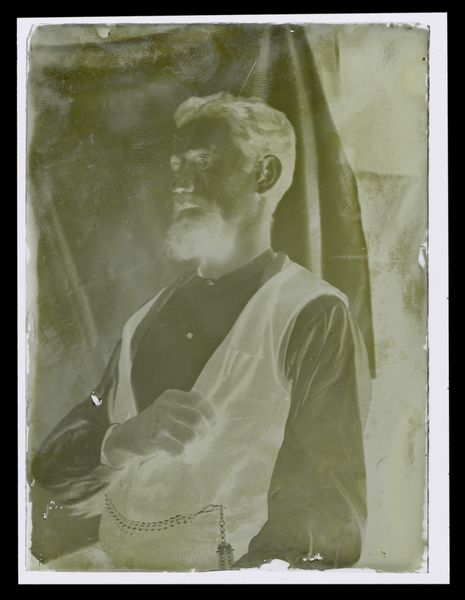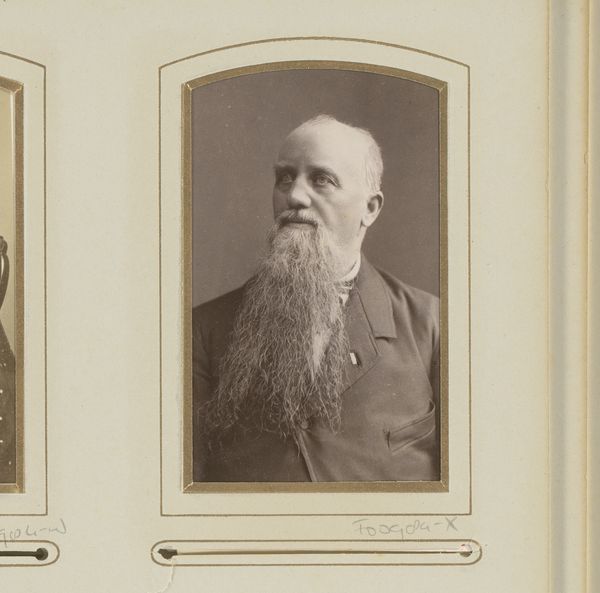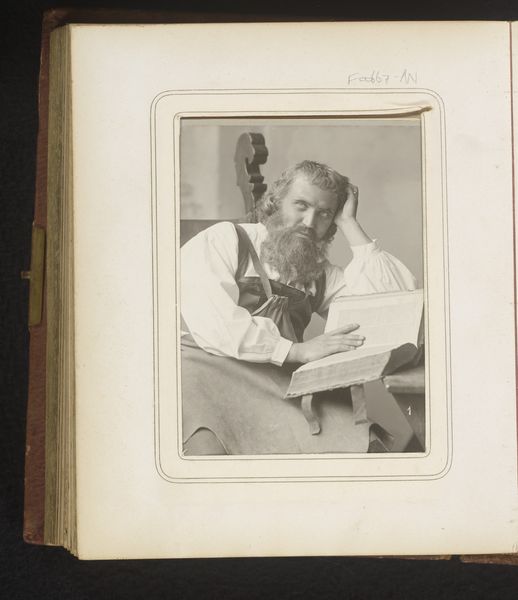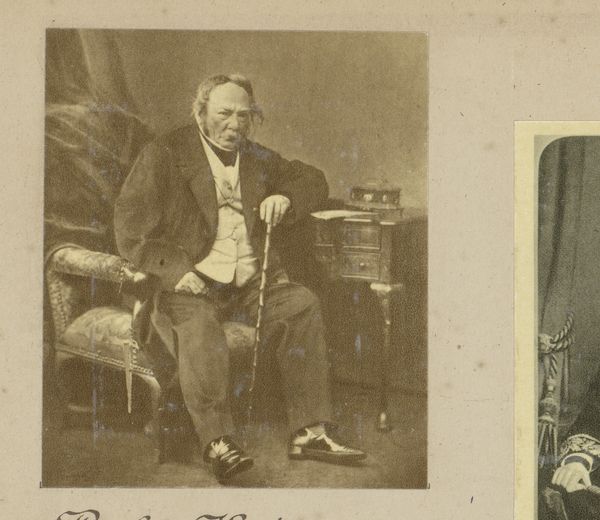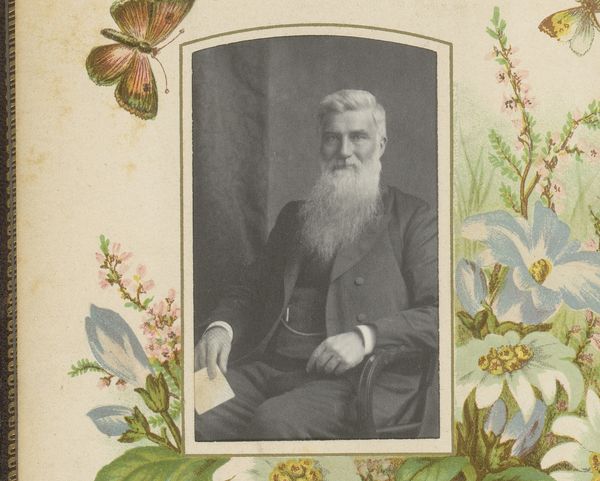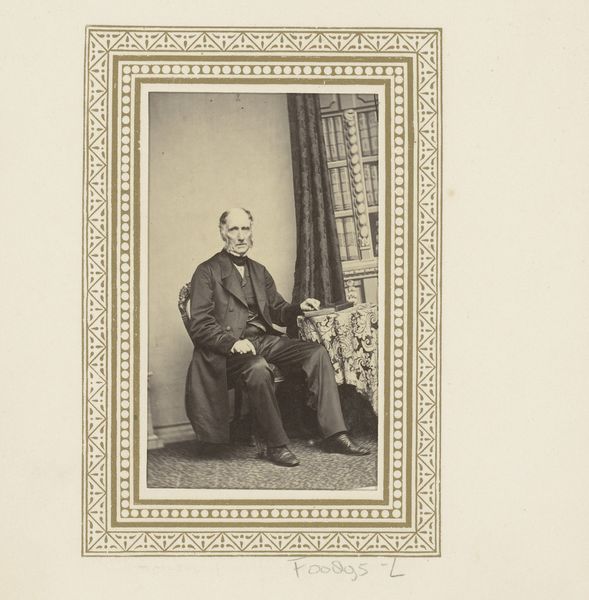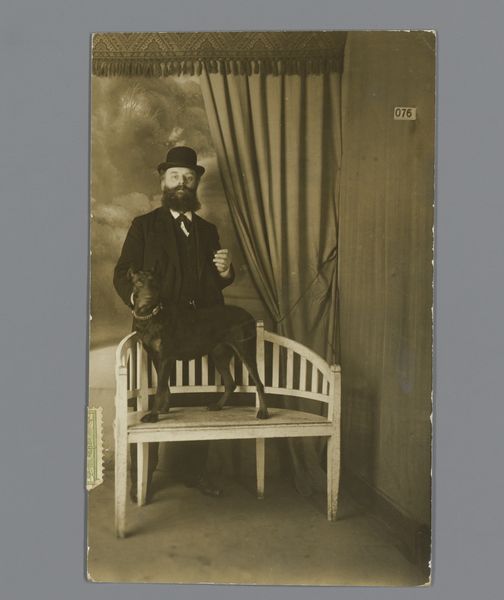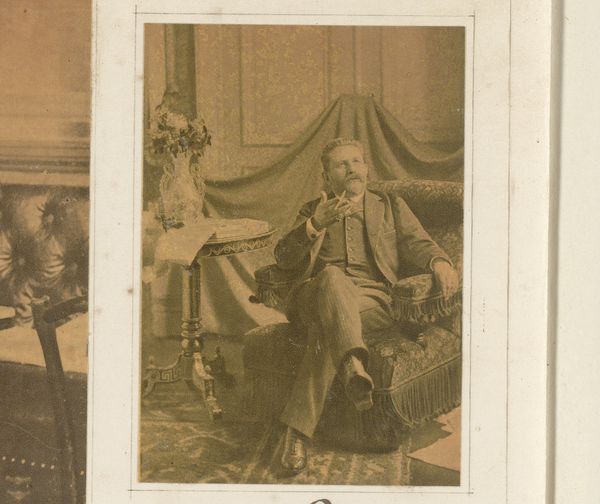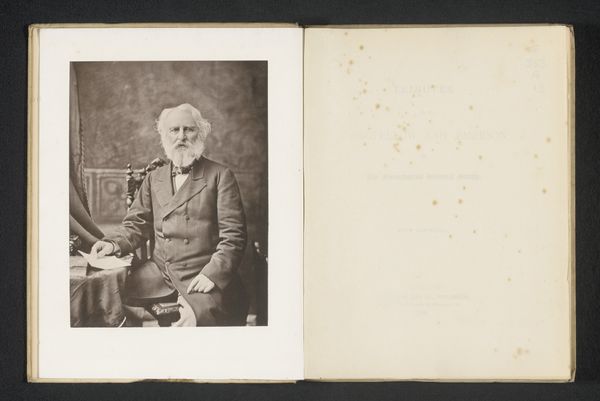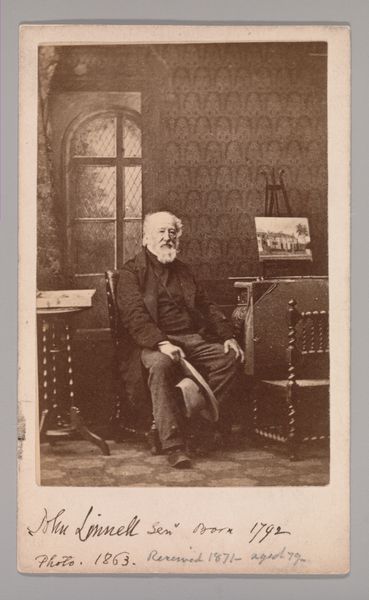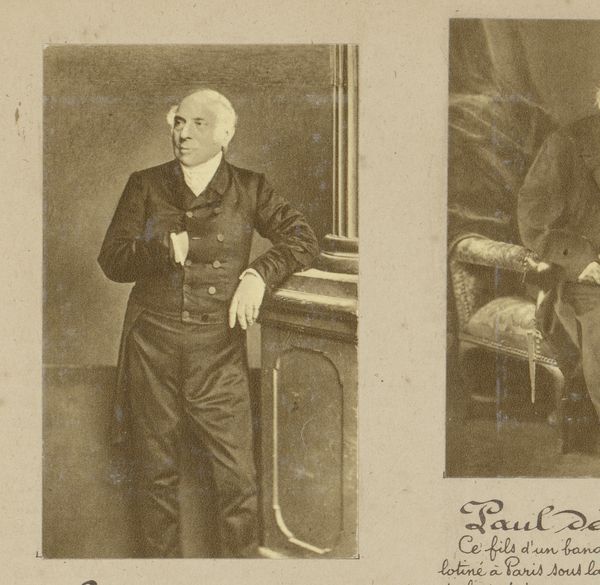
photography
#
portrait
#
still-life-photography
#
photography
#
realism
Dimensions: height 64 mm, width 94 mm
Copyright: Rijks Museum: Open Domain
This is an undated photograph of Charles-Émile Auguste Durand, taken by an anonymous photographer. The image captures Durand, an artist also known as Carolus-Duran, seated and posed in a way that exudes authority and status, reflective of the social conventions of portraiture at the time. In nineteenth-century Europe, portraits were potent symbols of identity and class. They were commissioned to project a certain image of oneself to the public. The presence of the painting in the background, presumably one of Durand’s artworks, reinforces his identity as a respected artist. While we don't know much about the photographer, the image serves as a reminder that photography during this period was often intertwined with social and economic power. It raises questions about who had access to the medium and whose stories were deemed worthy of documentation. The image invites us to reflect on the power dynamics inherent in portraiture and the ways in which individuals like Durand sought to shape their public persona.
Comments
No comments
Be the first to comment and join the conversation on the ultimate creative platform.
